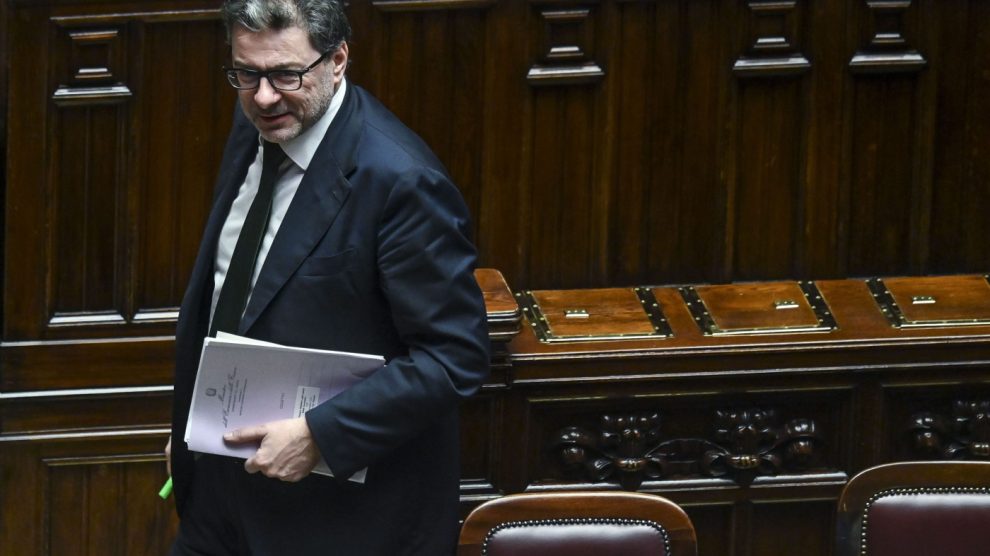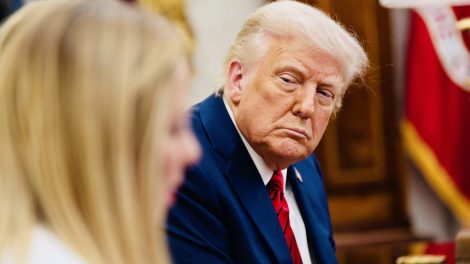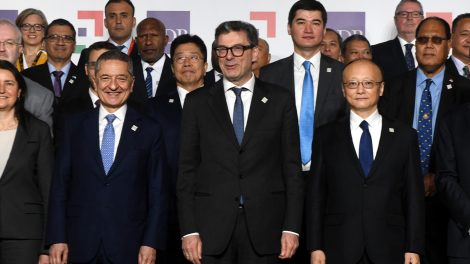Giorgetti weighs in on subsidies. On Monday, the Italian Economy Minister again touched upon the matter of State aid, which has become a flashpoint in transatlantic relations and a matter of contention within the European Union.
- “We are aware of the need to review State aid policy, which must become less bureaucratic and more flexible,” he stated, noting such reform should also encompass the EU’s already-existing financing means – such as the Important Projects of Common European Interest (IPCEIs) and the Next Generation EU fund.
- Last week, Minister Gioregtti met with Mike Pyle, United States Deputy National Security Advisor, to discuss industrial matters and seek convergences over State subsidies.
A step back. The European Union is grappling with concerns over the United States’ rush to subsidise its cleantech industries via the Inflation Reduction Act, which earmarked nearly $370 in subsidies for products produced and assembled (to a varying extent) within North America.
- Seeking to protect European companies, Brussels is pushing Washington to carve out exceptions for them, although it’s unclear how much leeway the Biden administration actually has.
- In parallel, a growing number of EU States and officials are signalling their will to retouch the bloc’s stringent State aid rules – which have historically discouraged high amounts of public funding to keep the single market balanced and favour competition.
Rome’s take. Italy has been pressing the EU to change its stance, which it deemed too stringent. In Minister Giorgetti’s own words, reforming State aid rules is “necessary […] in the face of the challenges of competitiveness of European industry, especially for its strategic sectors and the changed economic environment of prices and availability of materials.”
- All this must happen “without jeopardising the conditions for competitiveness within the EU by discriminating against countries on the basis of their fiscal space,” he stressed, noting that common forms of financing for strategic European projects – namely, IPCEIs – are “the correct response to this challenge.”
- As a highly-indebted nation, with a debt-to-GDP ratio hovering around 148%, Italy – despite being Europe’s third-largest economy and second-biggest industrial power – would not have the fiscal firepower to match the investments of the likes of Germany and France.
The next steps. EU Commission President Ursula von der Leyen is expected to signal a relaxation of State aid rules in her Tuesday speech at the Davos conference. Then European officials will discuss the matter on February 9-10, and they’re likely to come up with a roadmap for a mirrored version of the IRA – tentatively called the “Buy European Act” or “Clean Tech Act”.
- That’s the exact solution proposed by US Trade representative Katherine Tai in November. She had urged the EU to replicate the US’ efforts and introduce its own strategic subsidies to complement Washington’s own, with the ultimate aim of fending off unfair competition from the likes of China, whose industries have long been heavily subsidised.




